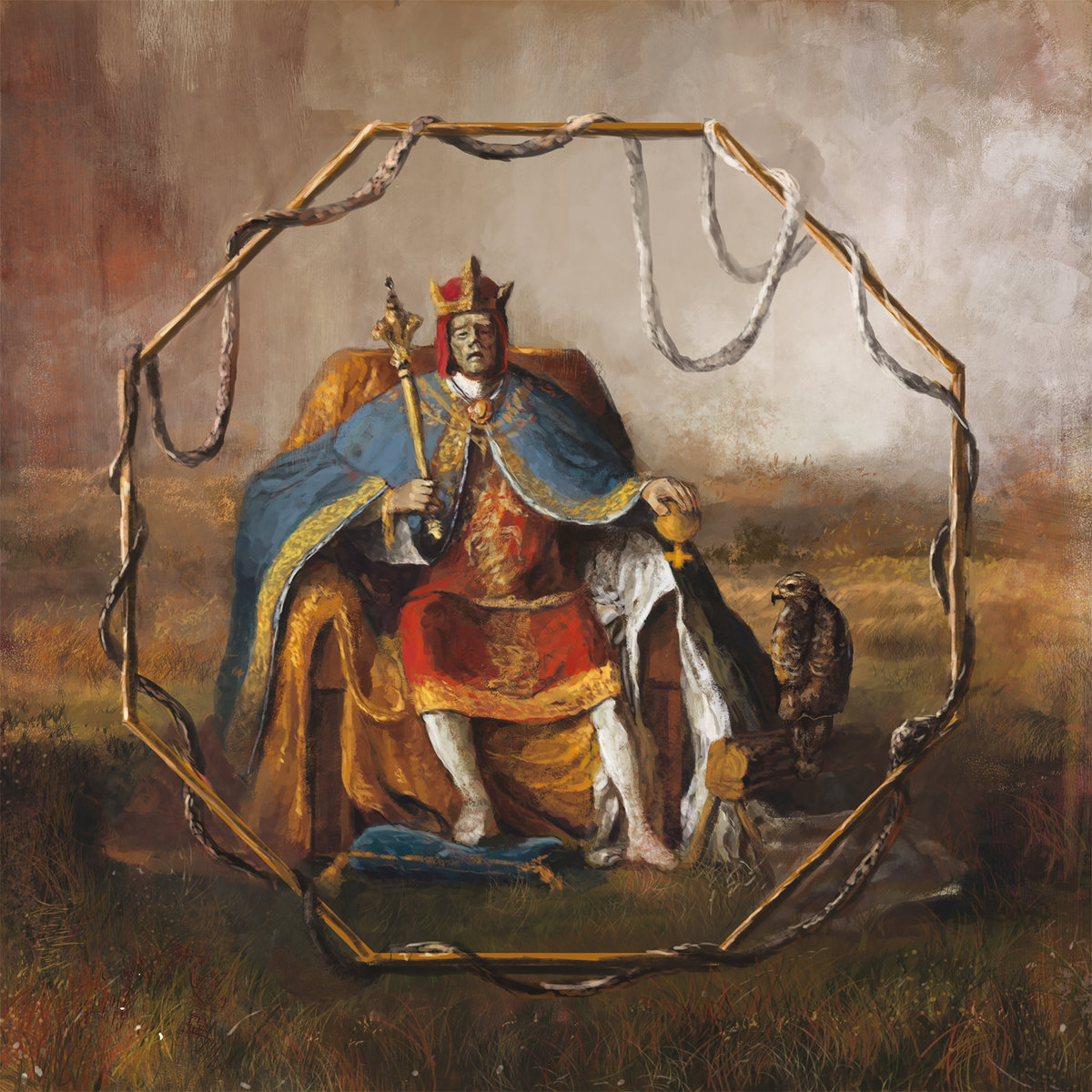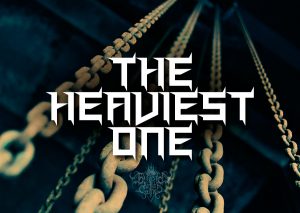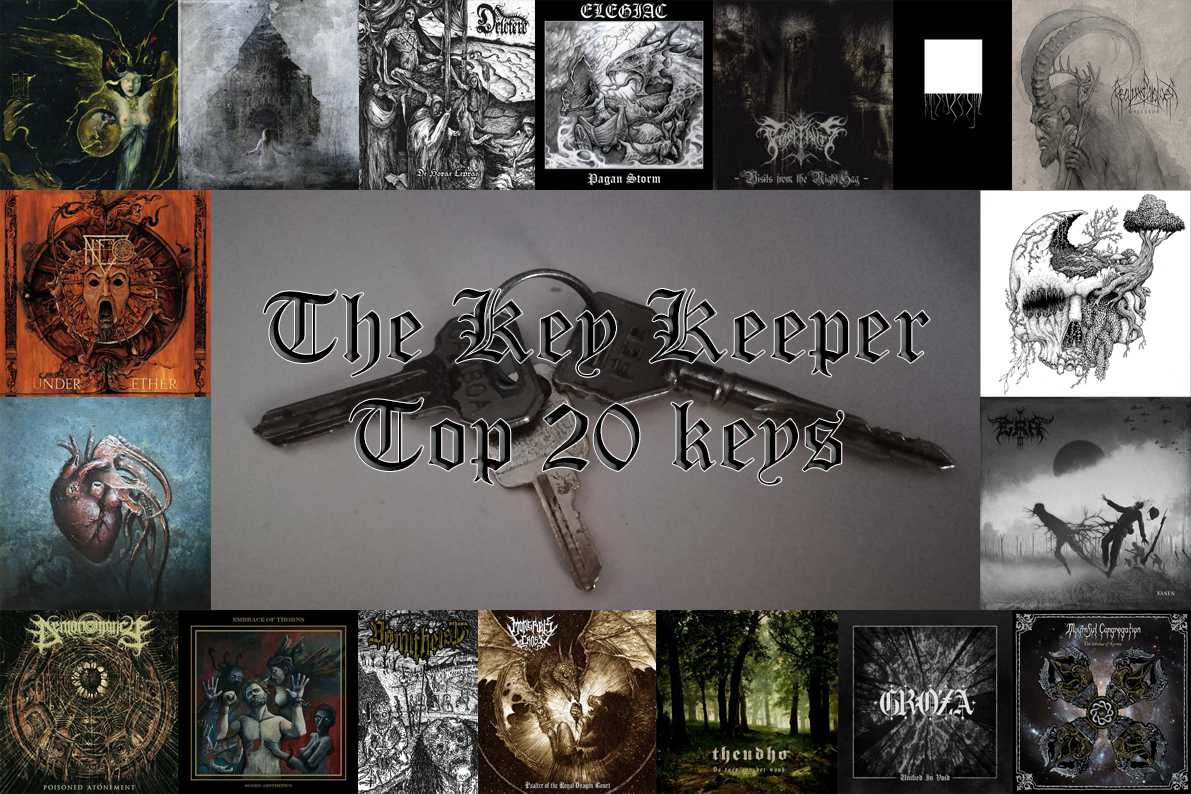Dewfall – Hermeticus
6 min read
Band: Dewfall
Title: Hermeticus
Label: Naturmacht Productions
Release Date: 13 October 2018
Country: Italy
Format reviewed: Digital
Glistening atop a rocky hill in Apulia, a region of south-eastern Italy, there stands an octagonal castle, unique in its design and dominating the landscape. Made of ‘limestone, white marble, and coral breccia,’ it must have dazzled local residents upon its completion in 1240 with its similarity to the ‘New Jerusalem’ that descended from heaven in the Book of Revelation. Indeed, its structure may have been inspired by its designer’s trips to the earthly Jerusalem to negotiate for the city’s restitution; certainly it represents the entanglement of Latin, Greek and Arab cultural influences present at the time but also, microcosmically, in the mind of that designer – the Holy Roman Emperor Frederick II.
The castle in question is the Castel del Monte, the Emperor in question was nicknamed Puer Apuliae (‘Son of Apulia’), and the band in question is Dewfall – also sons of Apulia. Hermeticus, they write, is a “tribute to the heritage of the European traditional paganism and esotericism embodied by the Emperor Frederick II, the medieval Suevian sovereign also known as Stupor Mundi and Puer Apuliae, who mysteriously marked Italian and Apulian culture.” Given their geographical connection to the theme, it could also be said to be an exploration of the band’s primeval roots. It’s an ambitious project, proof again to my mind that black metal is the thinking person’s metal. The album art ties the concept up neatly with a bow. The decrepit sovereign adorns the front cover, clutching his imperial regalia with waxy grey hands: the orb and sceptre. The cross-bearing orb, a symbol of Christ’s dominion over the earth, is held upside down, because this is BM after all. It could also be a reference to his denunciation by his papal enemies as the predecessor of the Antichrist. The Hohenstaufen eagle perches by his feet. All of this symbolism sits within an octagonal structure, no doubt a nod to the Castel del Monte, an atmospheric painting of which graces the back cover.
It would all be a complete waste of effort if the album was shit, wouldn’t it?
But hooray, it is not! Vivet draco magnus! It is beautifully well-executed, and comes seemingly out of nowhere. The band formed in around 2003, released their first full-length in 2009, and then underwent lineup changes that resulted in the present singer, Vittorio Bilanzuolo, joining in 2011. This is his first full-length outing with them, following a killer EP in 2013. Guitarist Flavio Paterno is the one remaining original member, and is the architect behind the album’s grand design. I hadn’t heard about Dewfall before stumbling onto the preview track on one of my daily Bandcamp trawls, but holy fuck, as soon as I heard it I asked my dark overlords at BAZ if I could review it.
Hermeticus is a syncretic mix of folklorish, alchemical, hermetical and historical themes, set to an equally diverse musical backdrop that’s mainly a kind of pagan/melodic black metal with a clear traditional epic heavy metal influence. It begins with what’s possibly its most striking track, apocalypse-themed ‘The Abomination Throne.’ The acoustic intro manages, despite its almost-folkiness, to convey evil intent. The flute, the cry of a bird of prey (a nice detail considering the album’s protagonist was a keen falconer)… and usually this is where I find myself disappointed. If you’re going to put me into a reverie with your atmospheric opener, you’d better make sure your black metal keeps me there. The song achieves this: it is a rich, multi-layered composition featuring numerous little breakdowns that reprise the motifs in the intro, and its centrepiece is the glorious, theatrical prophet-of-doom-sounding cameo of the Roman Davide Straccione. He sounds excellent enough in his own band, Shores of Null, but by Jove, he takes this song into the stratosphere. Normally I find ‘guest stars’ on a record to be a bit self-referential, a bit like breaking the fourth wall, but Straccione’s inclusion feels entirely organic.
By contrast to Straccione’s style, Bilanzuolo’s voice is a satisfyingly deep and vicious rasp. He chews each word like a ravenous hyena wrestling with a carcass and gives many a terrifying performance, particularly on the Latin passages in ‘Murex Hermetica,’ backed up by a lonely Gregorian-sounding chant, as if a monk has become trapped in the octagonal prism of the Castel del Monte. And ‘Apud Portam Ferream’ – another album highlight – sees him joined by another excellent BM snarler, V’gandr of Helheim and Taake, whose distinctive clean (if they can be called that) vocals add to the album’s underlying ecclesiastical tone.
It is an album that, as they say, rewards repeated listens. It is divided into two movements of four songs each, Vivet Draco Magnus and Vitae Mortisque Mysterium. The latter half takes a little bit more getting used to, but once you’ve invested the time it deserves, it will pay you back threefold. Two of the songs – ‘The Course to Malkuth’ and ‘Apostasy of Hopes’ – appeared on the 2013 EP Painful Death Lake, and ‘The Eternal Flame of Athanor’ appears to also date back a couple of years. The band’s first EP – which I don’t seem to be able to track down – is said to have been more traditional heavy metal influenced, and this influence can clearly be seen on the alchemical ‘Athanor,’ which has a blinder of an opener and an excellent back half featuring a gallop and a bunch of solos piling up on top of each other – fans of Iron Maiden will appreciate this one. It’s a great example of the bright, soaring leads that fill the record from start to finish. ‘Moondagger’ contains surprising flashes of tech-death, while ‘The Course to Malkuth’ sounds like a chain-gang of dwarves being marched through the Dolomite mountains, which brings to mind Dewfall’s Naturmacht labelmates Dauþuz. While Vivet Draco Magnus sounded triumphant, Vitae Mortisque Mysterium takes a darker turn; Malkuth is the lowest sephiroth on the (Kabbalistic) tree of life, and means ‘kingdom’ – fittingly, for an album about a Holy Roman Emperor. ‘And from Kether [the crown of the tree of life] march / To reach the course to Malkuth / Through the Tifareth, dark / Down in the course to Malkuth.’ Down we go, terminating our hermetic journey in Sheol, the underworld, where ‘the carnivorous anxiety about nothingness devours.’ The album ends as atmospherically as it begins, returning to the flute, the acoustics, but somehow now desolate-sounding and breathless.
If you’re still with me, I’ll sum up and sign off. Hermeticus is an ornate gallery of perfectly-formed miniature epics, and what I like is that the songs take you somewhere and then bring you safely back home. They don’t meander. You’re not lost in an eight-minute aural wilderness, scrabbling for hooks to remind you what track you’re actually on. There are no weak tracks; indeed, because the album is so strong, so unrelenting, I admit that sitting through the entire thing can be an overpowering experience and I’ve sometimes found myself pausing it, getting up, and then pacing around like a wolf in an enclosure. I salute Flavio Paterno and the talented line-up that played on this album (which I believe has now been slightly adjusted), and only hope that we aren’t left waiting too long for Dewfall’s next opus, because surely now they’re in a place to gather some momentum. If this album doesn’t catapult them up into the celestial spheres, I’ll eat my own Tarot deck. 9.5/10. Grim Princess
Label
Official Website
Facebook
Twitter
Bandcamp
Instagram
9.5/10 Epic Storm
**Please support the underground! It’s vital to the future of our genre
#WeAreBlessedAltarZine
#TheZineSupportingTheUnderground



